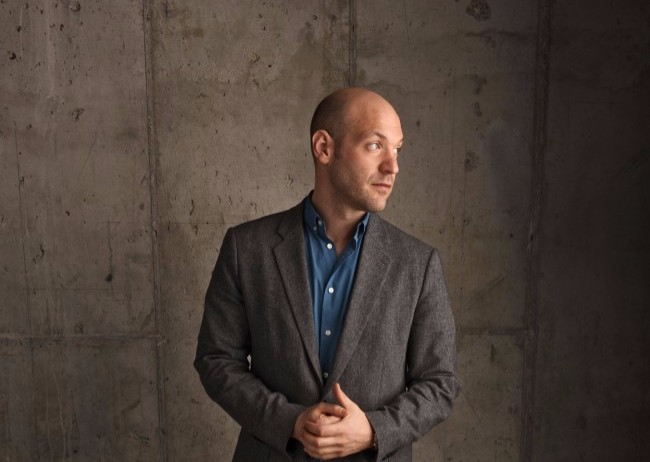
Corey Stoll, who played Brutus in the Central Park production of Julius Caesar, has opened up about what it’s been like starring in such a hot topic show and carrying on through the occasional protest. Some of his thoughts are serious, such as his response to accusations the play actively advocates for President Trump’s assassination, but some are on the humorous side and involve a funny misunderstanding about gerbils.
Stoll penned an essay for Vulture about playing the part of Brutus, who far from espousing “bros before hos,” lived more of a ride or die, “Rome before besties” mantra and stabbed Roman hero Julius Caesar halfway through Shakespeare’s famous play. Though Stoll had reservations at first that the literal portrayal of Caesar as Trump would come across as “what could seem like a Saturday Night Live skit,” and the audience wouldn’t connect with the actors’ depth of craft. At first, the audience did respond with humor. But as the company tightened their performance, audiences stopped seeing the portrayal as funny, and instead found themselves horrified and complicit.
“The play makes it clear that Caesar’s murder, which occurs midway through the play, is ruinous for Brutus and his co-conspirators, and for democracy itself… “A nontrivial percentage of our liberal audience had fantasized about undemocratic regime change in Washington. Acted out to its logical conclusion, that fantasy was hideous, shameful, and self-defeating.”
Indeed, even on the page, without the nuanced work of skilled actors, the play lays bare just how ugly and counterproductive the act of assassination is as the mob turns against Brutus and his co-conspirators. Yet many conservatives have been quick to blame this Julius Caesar run for acts of “left-wing extremism” like the shooting at a Republican Congressional baseball game. Julius Caesar almost certainly didn’t motivate James Hodgkinson to open fire on Steve Scalise and his fellow lawmakers, but the backlash from the shooting, as well as grotesque jokes by Kathy Griffin and Johnny Depp, mirror the play’s warning about the consequences of Brutus’ actions.
As controversy mounted and protestors were emboldened by Laura Loomer and Jack Prosobiec’s protest during which Loomer stormed the stage, Stoll began to worry that if anything violence might be committed against the actors during the tense, visceral scene in which Caesar is stabbed. “In our last two performances, the security increased again, and the moment before the assassination became meta-theatrical,” he wrote. “As the conspirators covertly moved in on Caesar, I wondered how many eyes were on us, at the same time, waiting for their own cue?”
On a lighter note, Stoll also described the night that Loomer climbed on stage and started shouting about “the normalization of political violence against the right.” Her accomplice Prosobiec was filming in the crowd and started loudly accusing the audience and performers of being “Goebbels,” referring to the minister of propaganda for the Nazi regime. But from stage in all the commotion, Stoll thought that Prosobiec was shouting about “gerbils.”
But Nazi rodents aside, Stoll’s most powerful statement was on why art is so essential at times like these. “Watching my castmates hold their performances together, it occurred to me that this is resistance,” he wrote. “In this new world where art is willfully misinterpreted to score points and to distract, simply doing the work of an artist has become a political act.”
(Via Variety)
